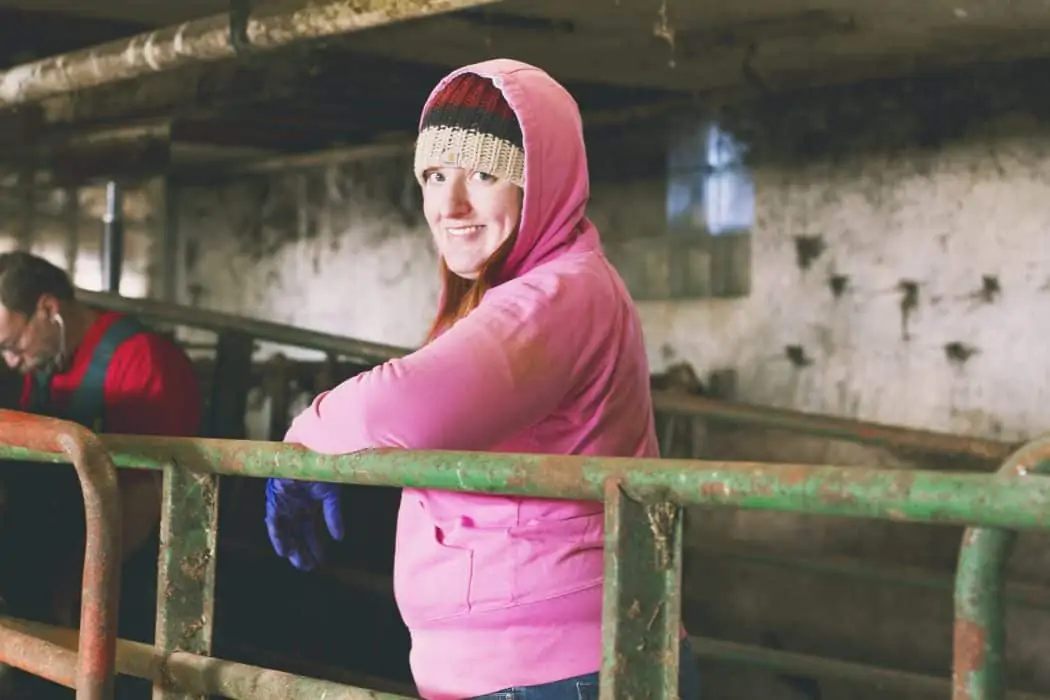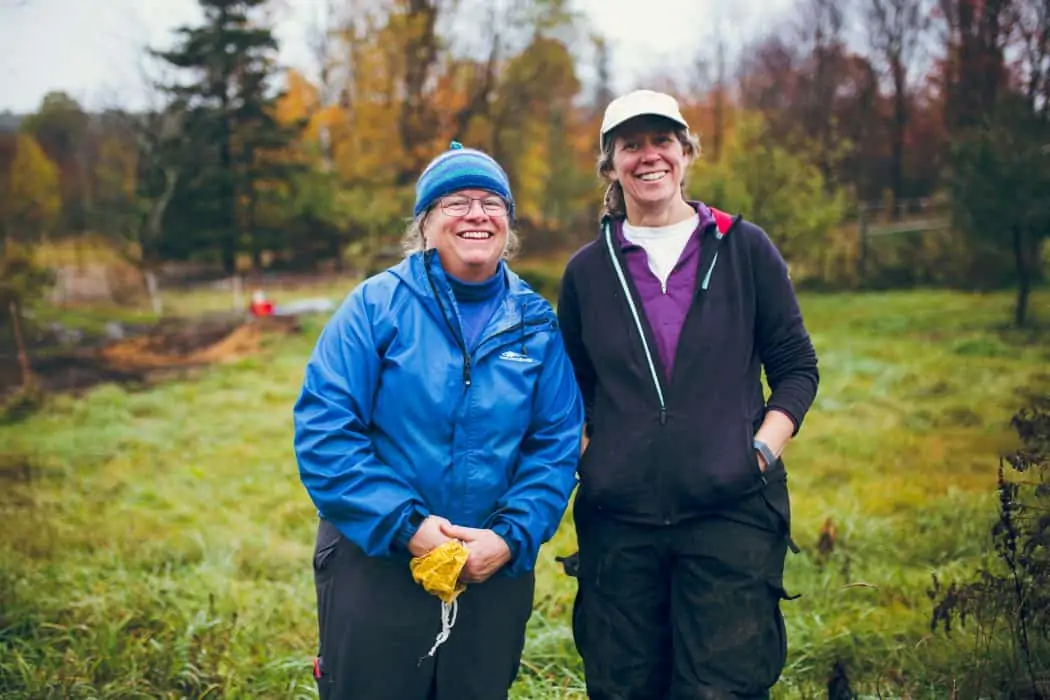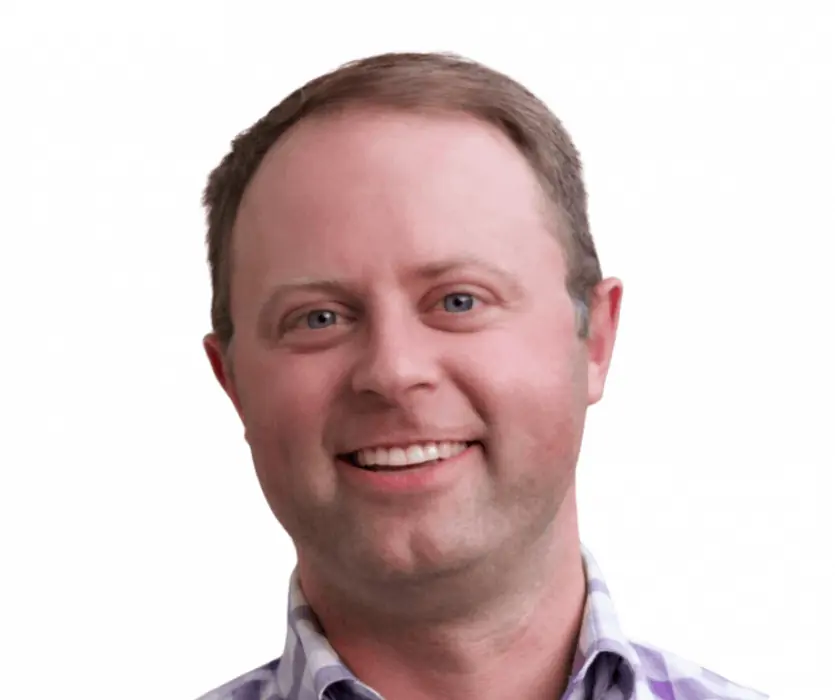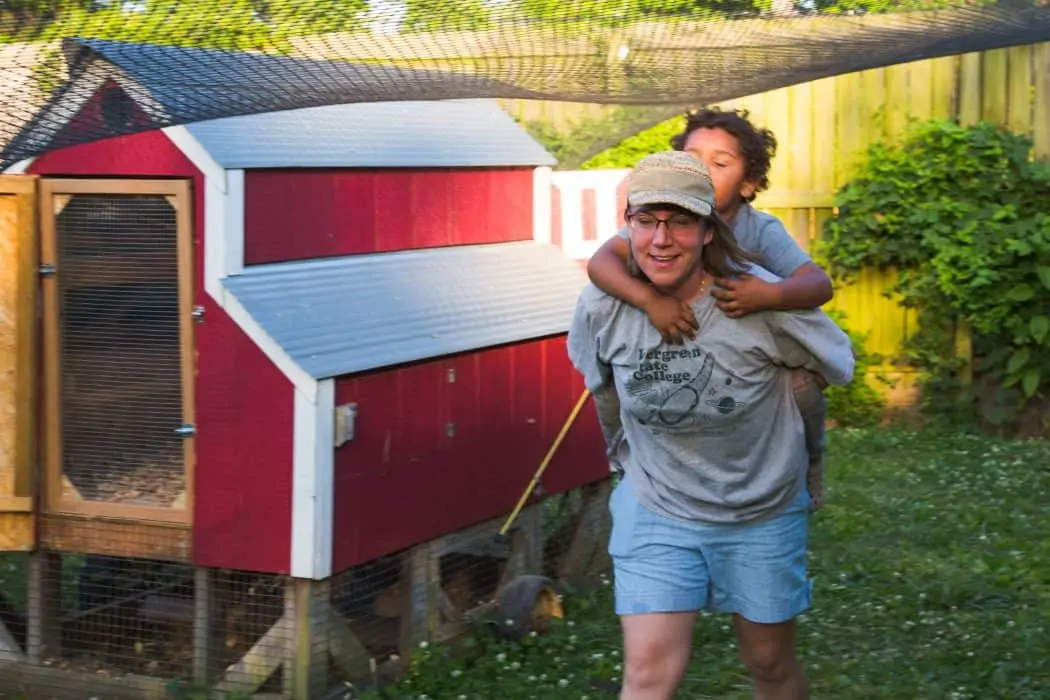In pride month, and every month really, we at FarmHer believe you do you. Be who you are. And love who you want to. This is a month of advocacy and celebration when the LGBTQ+ community from across the world comes together and celebrates the freedom to be themselves. Pride month is rooted in the history of minority groups who have struggled for decades to be accepted for who they truly are.
Whether you are a part of the LGBTQ+ community and want to make a difference or be your true self in the agriculture community, or need advice on how to be a supportive ally, this Nationwide Everybody Eats blog and podcast is for you because love is love.
Pride Allies
In order to be an ally, you must surround yourself with others who have similar beliefs and are willing to have conversations around topics your feel passionately about. I did just that with inclusivity and diversity in agriculture.
First, I visited with a dear friend of mine and extraordinary agriculture advocate, Dairy Carrie, about her blog segment: Humans of Agriculture and how she is an ally for the LGBTQ+ community not only in agriculture but in life.
Then, I switched gears to another industry leader who is literally “Cultivating Change”, J.J. Jones. J.J. is on the Board of Directors for Cultivating Change, an agricultural foundation that is making a huge impact through its mission.
Dairy Carrie and Humans of Agriculture
If you have remotely followed FarmHer over the years, you’ve met Carrie. She is a dairy FarmHer in Wisconsin who farms right alongside her husband, two sons, and her husband’s family. She did not grow up in agriculture, but when she met her husband, that all changed.

Almost 15 years ago, she moved to the farm and was learning an overwhelming amount of information. That’s when her idea to share what she was learning with other people through a blog sparked.
Now, it’s blossomed until a full platform of agriculture advocacy.
When she took her blog to the next level, she added a new segment that highlighted all kinds of people: Humans of Agriculture. The stories are raw, real, and fascinating and show that everyone has things in common within the agriculture community.
Raw Stories for Everyone including Pride
Right away, she discovered not all stories are good stories and agriculture is much more diverse than we think.
She tells the stories of people who suffer from mental illness, went through abusive relationships, dealt with cancer, immigrated, and from the LGBTQ+ community. The list goes on and on but these stories inspire others to realize there are people just like you in your industry.
But whenever you put raw stories into the world, there are positive, and most definitely, negative comments that come from it. But Carrie created her platform for good. She believes pride is something that deserves to be heard and I couldn’t agree more.
Her biggest advice for being an ally to the LGBTQ+ community is calling people out who are not allowing others to be their true authentic selves. Send them a message or reply to their comment that is inconsiderate. Be a voice for those who truly can’t speak up.
Change starts with you.

Cultivating Change
Once I finished chatting with Carrie, I had the opportunity to meet with a founding member of the Cultivating Change foundation, J.J. Jones.

Cultivating Change started as a conversation a little over five years ago. The conversation consisted of several individuals who are passionate about food, rural America, and agriculture and also happen to be members of the LGBTQ+ community. They sensed there was a need to support those who longed to be their true authentic selves in the agriculture industry.
And they hit the nail right on the head.
At the end of their conversation, they concurred a foundation that could “cultivate change” is just what the industry needed. Cultivating Change explores ways to provide education, advocacy, and community to those individuals who identify in both agriculture and LGBTQ+ communities.
Relating in a Personal Way
J.J. grew up in western Kansas with a huge role in agriculture and rural living. He continued his passion for agriculture into college and now the communications realm. Also, being a member of the LGBTQ+ community, Cultivating Change is something he proudly is involved with.
He doesn’t want others to feel the same pain he did in the past. Because at times, he felt very alone. Like he was one of a few who related to both communities.
In the agriculture community, he often felt like it was a choice between his sexual orientation or gender identity and being a part of rural America or the industry. His and Cultivating Change’s goal is to inspire others to always show up as their true authentic selves, even in the agriculture industry.

Foundation At Work
In addition to creating conversation around this topic, the foundation offers organizations that are governed by students at colleges and universities across the U.S. That way as young people are discovering themselves and their career paths, they know they can belong to both communities without fear and find others to relate to.
Cultivating Change hosts regional receptions too. This enables businesses across the U.S. to network and ask for resources to help incorporate the necessary tools on inclusion and diversity.
Pre-pandemic, the foundation’s largest event of the year is its Cultivating Change Summit. This event brings allies and LGBTQ+ members alike together for a conference that includes keynote speakers, breakout sessions, and celebrations. The foundation plans to bring the summit back in 2022.
Inclusivity Matters
J.J.’s biggest takeaway to improve inclusivity in the rural and food space is practice makes perfect. Start slowly. Think about communication or marketing pieces your business puts out. Don’t always use a male pronoun or showcase a photo of the stereotypical farmer. Inclusivity is for everyone and small steps make a big difference. Think of inclusivity and diversity as a journey, not a destination.
I absolutely loved one comparison J.J. made for us all to take into consideration:
Imagine you’re hosting a dinner party. Your goal is to make your guests as comfortable as possible like they’re at their own home. Do the same thing with the pride community. View yourself as the host. Embrace members of the LGBTQ+ community with open arms, minds, and hearts and continue to learn as much as possible about what makes them comfortable.
Because everyone deserves to be respected and loved. Remember to always be your true authentic self. And love is love.
Everybody Eats
Find More Stories at Everybody Eats
We all eat, and that is why farming will always matter. Everybody Eats is where the stories of food and farming intersect.
These stories told through my FarmHer lens connect us to our food and more importantly, the people behind it.
Everybody Eats is a collection of stories of those who protect our rural communities, who grow our food with extraordinary care, and who provide support, education, and assistance to make sure Everybody Eats.



Thank you for bringing attention to Pride month. Attention to issues of Equality seem to be uncomfortable in rural and farming communities. We moved to our farming community from a more urban area and were surprised by the attitudes toward social issues that we had thought normalized. Now I realize how far we still need to go as those struggling to understand Equality are my friends and neighbors. Thank you again for sharing good work that is happening to spread understanding!!!